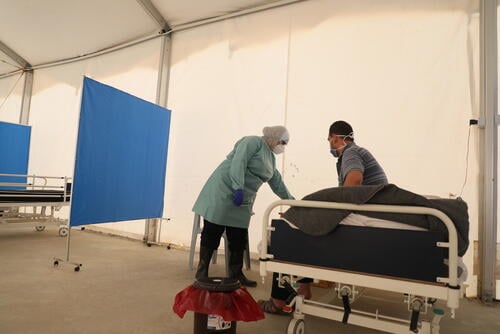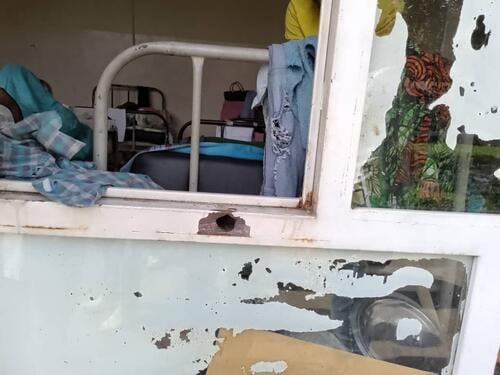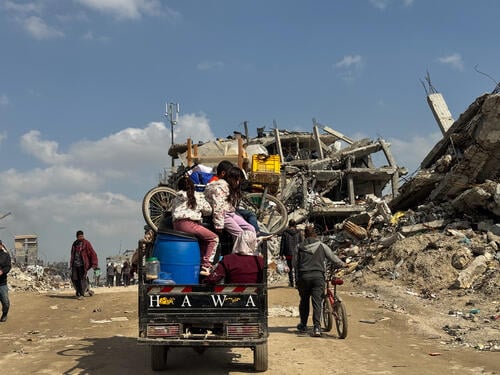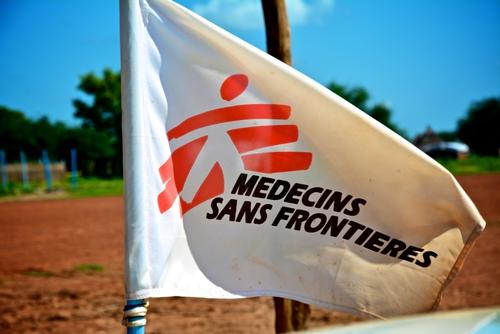One month after the first person tested positive for COVID-19 in Jordan’s Zaatari refugee camp, Médecins Sans Frontières (MSF) has so far received seven patients at our COVID-19 treatment centre in the camp.
MSF’s 30-bed centre, run in collaboration with the Jordanian Health Ministry, local authorities, the UNHCR and other organisations in the camp, provides medical care to people with mild or moderate symptoms of the disease. Patients in a severe or critical condition are referred to designated Ministry of Health hospitals.
Jordan recorded its first confirmed COVID-19 case in March, and the government reacted quickly by implementing strict preventive measures to stem the spread of the virus, including complete shutdown of land borders, ports and airports, as well as a weeks-long lockdown and extended curfews. Yet, the gradual easing of lockdown measures in June saw the steady increase of confirmed cases across the country, reaching Mafraq governorate where Zaatari camp is located.
In a densely populated refugee camp, it can be very difficult for people to follow simple preventive measures such as handwashing, wearing a mask and physical distancing.Gemma Dominguez, MSF head of mission in Jordan
“We have been monitoring people’s health situation in Zaatari since March, as an outbreak in a camp setting can spread quickly,” says Gemma Dominguez, MSF head of mission in Jordan. “In a densely populated refugee camp, it can be very difficult for people to follow simple preventive measures such as handwashing, wearing a mask and physical distancing.”
Established in 2012, Zaatari refugee camp situated close to Jordan’s northern border with Syria. The camp is now home to around 76,000 Syrian refugees who fled the ongoing violence in their country in search of safety and security in neighbouring Jordan.
The recent emergence of COVID-19 in Zaatari camp and the consequent restrictions put in place at the beginning of the pandemic - to limit the spread of the virus - have added another layer of difficulty for refugees who have been living away from home for years. The movement restrictions and curfews imposed have forced shops to close and have affected people’s ability to leave the camp for work, causing a disruption for those eking out a livelihood.
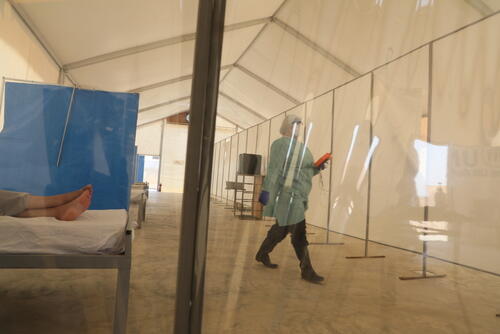
People in the camp have also expressed concerns over contracting the new coronavirus and the inevitable impact it may have on their lives.
Majd, a 23-year-old Syrian man living in Zaatari camp, experienced a persistent fever and an unexplained dizziness for days that eventually led him to MSF’s centre for medical treatment. He is staying in the centre as he impatiently waits to receive the result of his COVID-19 test.
“I have been in the MSF hospital for two days,” Majd says. “I don’t cough and I do not have a runny nose, it was only a persistent fever that is now gone.”
“Now, I am still waiting for my test result; if I’m negative, I will be able to go home, but if I am not, I would have to stay here and receive medical attention,” says Majd. “If my test turns out positive, it is something that is beyond my control but God will help me, I’m not worried.”
In 2020, MSF teams in Jordan have provided 13,517 medical consultations and distributed medication for chronic diseases to more than 5,000 patients, both Syrian refugees and vulnerable Jordanians, while the home visits team has conducted 1,654 visits. In Amman, MSF continues to admit patients from across the region to our reconstructive surgery hospital. MSF has also made donations and provided training to the Jordan Medical Association.



